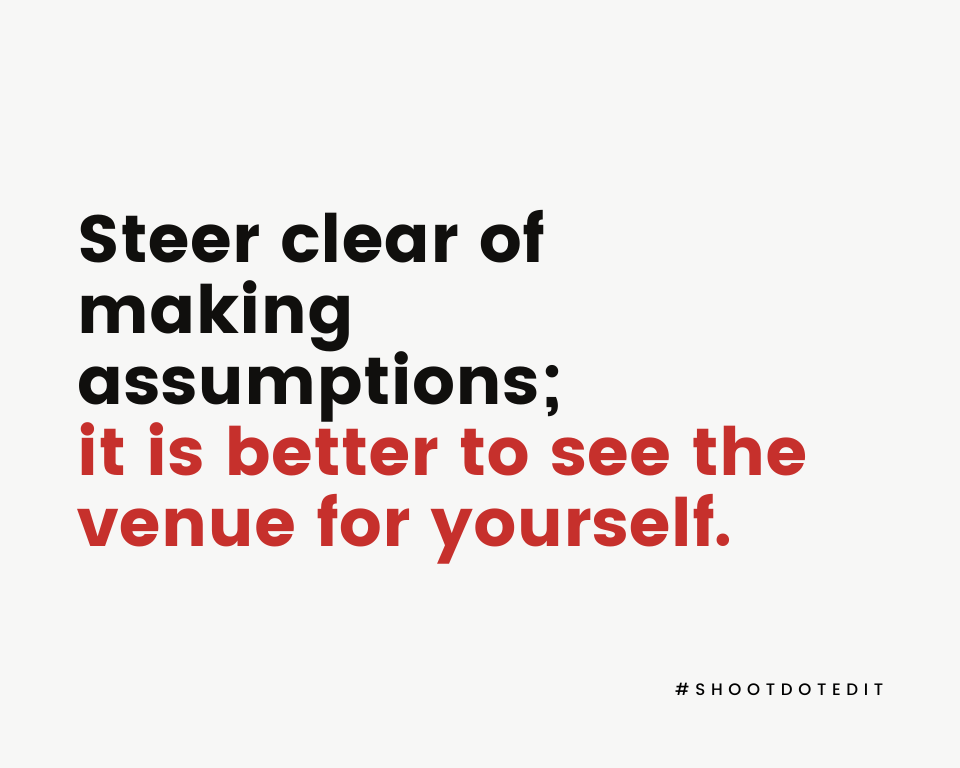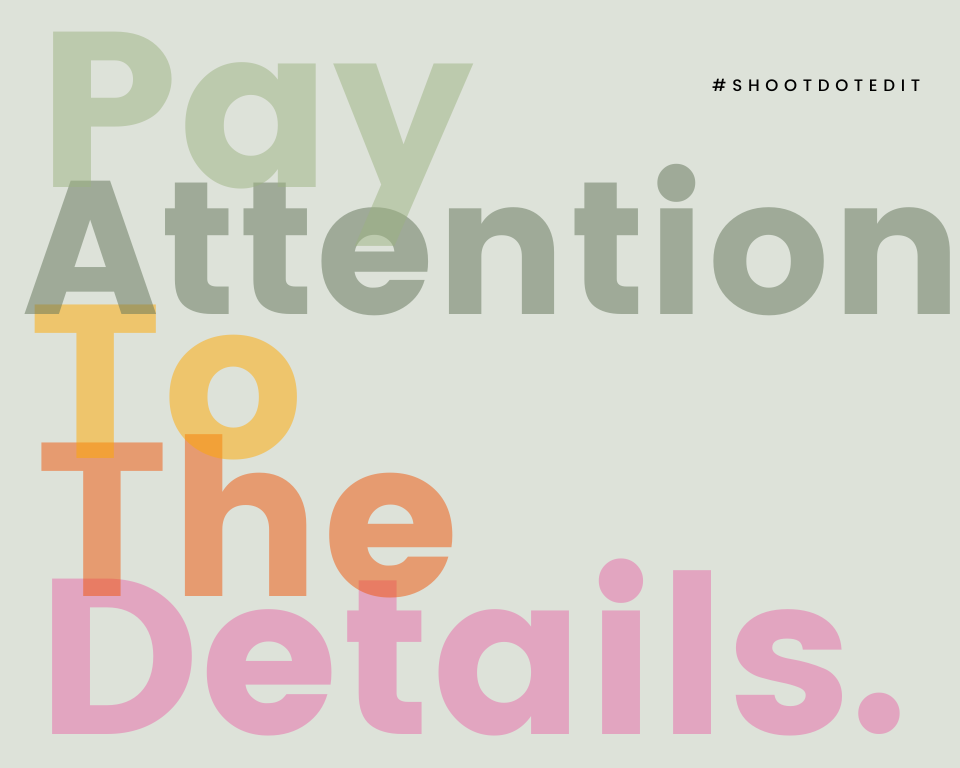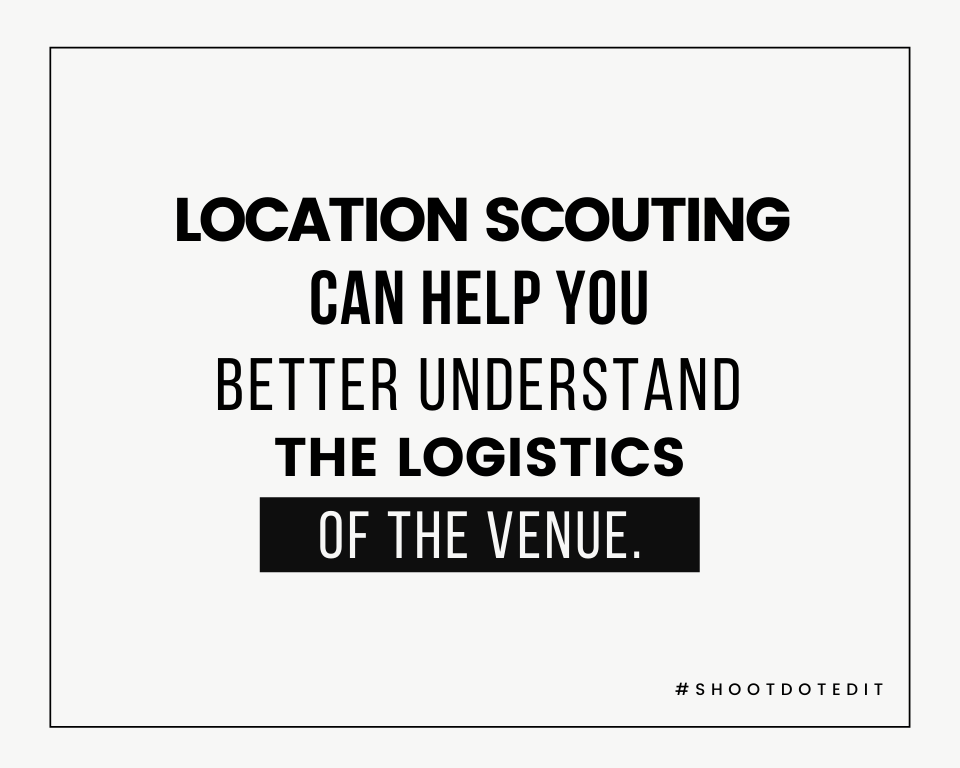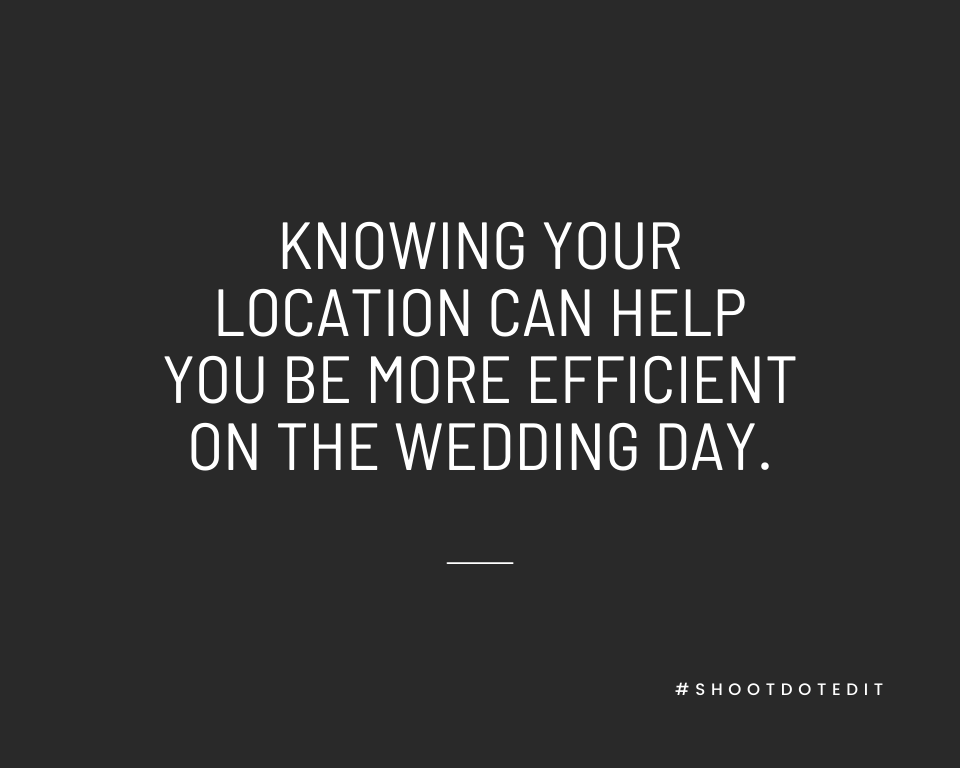
Understanding the Importance of Location Scouting
1. Scout the Location in Advance

Avoid last-minute surprises! Scout the location at least a week in advance. This will help you manage and prepare things better and make necessary arrangements to make room for any change of plans. Even if you are familiar with the venue, try not to make assumptions. Seeing all the nooks and corners by yourself could be worth the effort after all. Apart from scouting the location in advance, try to reach the place slightly early on the day of the event to set up your equipment and be better prepared.
Suggested Read: Simple Tips For Finding Places To Take Pictures Near You
2. Build a Road Map for the Session
As you take a stroll through the location, look around for spots and backdrops that could work as natural frames for your clients. Take notes of all the architectural features that you think could make for an interesting element in the photo. It could be anything from an ornately adorned fence to a tree looking resplendent in fall colors. When you make a note of such things, it helps you chalk out the road map for what you are planning to do in the session. This also saves you a lot of time on the day of the shoot since you already have a few spots in mind to get started. In addition to that, since you have a better understanding of the scene, you can now divert all your focus and attention towards the actual creative process than spend time looking for backdrops.
Suggested Read: Nailing Engagement Sessions: From Planning To Execution
3. Look Through the Lens of Your Camera

Every time you walk past a feature (either a background or an element) that you think could contribute to the scene, analyze it through the lens of your camera. Try out different frames and angles that could work for that particular spot. You could also try to photograph some random frames to get a better understanding of how to pose your couple around the scene to get the best output. Sometimes, a seemingly not-so-gorgeous scene could make for a good photograph and vice versa when framed a certain way. Therefore, try to understand those dynamics by observing the scene through the perspective of your lens.
Suggested Read: Wide-Angle Wedding Photo Inspiration From ShootDotEdit Customers
4. Think in Terms of Lighting
Another important aspect of location scouting is trying to learn more about the lighting situation of the venue or the area. If it is an outdoor location, understand that the lighting changes throughout the day. So try to observe where you have the best lighting and for how long. Also, pay attention to nature (hard or soft) and the direction of the light. When working with an indoor venue, scout for the location to get a better understanding of spots where you can work with natural light. Thinking in terms of lighting could help you save a lot of trial and error on the final day.
5. Ask Questions For Clarity

The location scouting process is not all about preparing for the final photos and finding out different photo-worthy scenes in the areas. It is as much about taking note of the logistics of the venue. This could include grasping all the relevant information about the location, the rules and regulations, the timings, the dos and don’ts, and photography permits and charges. Figuring out these specific details about the area or the venue will help you steer clear of any unexpected hindrances on the wedding day.
Further Read: Understanding The Rule Of Thirds In Wedding Photography

When going through the wedding day photography timeline, you don’t always have ample time to search for scenic backgrounds, test the light in different areas, and take a lot of trial photographs. Mostly, activities are lined up one after the other and you go ahead with the day as required. In contrast, the location scouting phase allows you the luxury to take out time for all this and more, making the process an integral aspect of planning ahead for your shoots.
At ShootDotEdit, we are passionate about helping you grow as a professional wedding photographer. One of the ways we do that is by taking editing off your post-production workflow. To learn more about how we can help your wedding photography business, check out our pricing plans.


Leave a comment